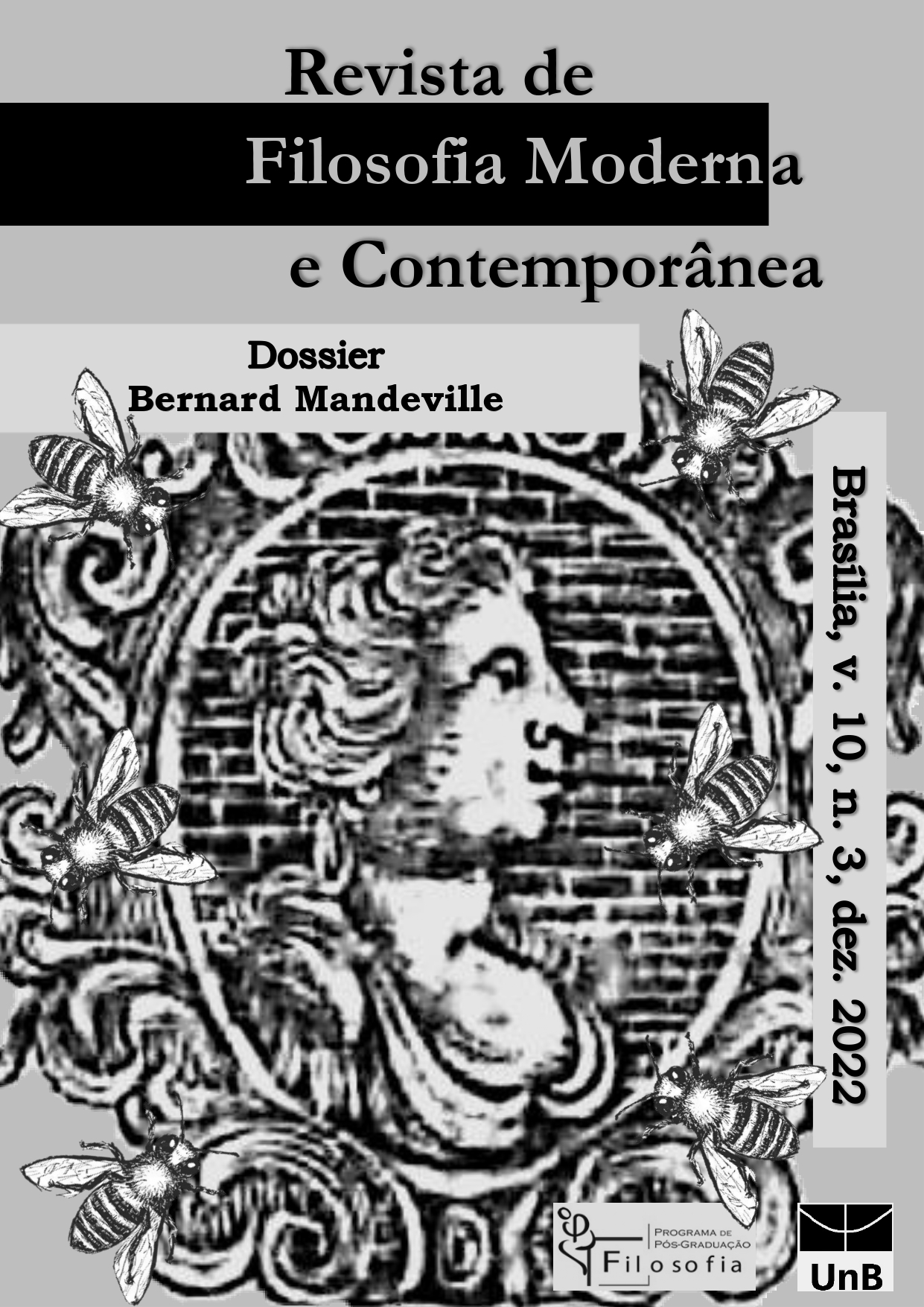Hume and Mandeville on Division of Labour, or, the World of Invention
DOI:
https://doi.org/10.26512/rfmc.v10i3.49609Keywords:
Anthropology. Commerce. Division of labour. Imagination. Invention.Abstract
This article proposes approximations between Hume and Mandeville based on the way each of them understands the division of labour as a modern phenomenon characteristic of European commercial societies. The starting point, common to both, is the idea that man, or human nature, is an animal moved by passions that are very similar, if not identical, to those of other animals, notably mammals. The anthropology underlying the division of labour thus has a physiological root. The same paradox interests these authors: the process of the division of labour, which enables the production of so many excellent artefacts, is the labour of unqualified artisans. There is, therefore, a disparity between the product and the principle that engenders it. As we intend to show, this is the leitmotiv of a critique, addressed by Hume, of the teleological proofs of the existence of God.
Downloads
References
BACON, F. The Advacement of Learning. Ed. Michael Kiernan. Oxford: Clarendon Press, 2001.
CLERO, J. P. Hume. Une Philosophie des contradictions. Paris: Vrin, 1998.
DELEUZE, G. “Présentation”. Instincts et institutions. Paris: PUF, 1955.
HUME, D. A Treatise of Human Nature. Vol. 1. Ed. David Fate Norton and Mary J. Norton. Oxford: Clarendon Press, 2007.
HUME, D. Essays, Moral, Political, and Literary. Ed. Eugene F. Miller. Indianapolis: Liberty Fund, 1985.
HUME, D. The History of England from the Invasion of Julius Caesar to the revolution of 1688. 6 vols. Indianapolis: Liberty Fund, 1983.
HUME, D. The Natural History of Religion and Dialogues concerning Natural Religion. Ed. Wayne Colver and John V. Price. Oxford: Clarendon Press, 1976.
HUME, D. Philosophical Essays concerning Human Understanding. London: A. Millar, 1748.
HUNDERT, E. J. The Enlightenment’s Fable. Bernard Mandeville and the Discovery of Society. Cambridge: University Press, 1994.
MANDEVILLE, B. The Fable of the Bees, or, Private Vices, Publick Benefits, Edited by F. B. Kaye. 2 vols. Indianapolis: Liberty Fund, 1988. First Published by Oxford University Press, 1924.
SÉRIS, J.-P. Qu’est-ce que la division du travail? Paris: Vrin, 1994.
TOLONEN, M. Mandeville and Hume: Anatomists of Civil Society. Oxford: University Press; Voltaire Foundation, 2013.
Downloads
Published
How to Cite
Issue
Section
License
Copyright (c) 2022 Journal of Modern and Contemporary Philosophy

This work is licensed under a Creative Commons Attribution-NonCommercial-NoDerivatives 4.0 International License.
Copyright for articles published in this journal is retained by the authors, with first publication rights granted to the journal. By virtue of their appearance in this open access journal, articles are free to use, with proper attribution, in educational and other non-commercial settings.


